High Voltage Regulator – 48V DC Output from 125V DC Input
- Rajkumar Sharma
- 6.974 Views
- easy
- Tested
- SKU: EL92871
- Quote Now
The project published here is a high-voltage adjustable regulator with an output 48 V DC from an input supply of 125V DC. The circuit is capable to drive load current up to 500mA. This regulator circuit designed for use in high-voltage applications where standard bipolar regulators cannot be used. Excellent performance specifications, superior to those of most bipolar regulators, are achieved through circuit design and advanced layout techniques. As a state-of-the-art regulator, the TL783 device combines standard bipolar circuitry with high-voltage double diffused MOS transistors on one chip, to yield a device capable of withstanding voltages far higher than standard bipolar integrated circuits. Because of its lack of secondary-breakdown and thermal-runaway characteristics usually associated with bipolar outputs, the TL783 maintains full overload protection while operating at up to 125 V from input to output. Other features of the device include current limiting, safe-operating-area (SOA) protection, and thermal shutdown.
Even if ADJ is disconnected inadvertently, the protection circuitry remains functional. Only two external resistors are required to program the output voltage. An input bypass capacitor is necessary only when the regulator is situated far from the input filter. An output capacitor, although not required, improves transient response and protection from instantaneous output short circuits. Excellent ripple rejection can be achieved without a bypass capacitor at the adjustment terminal. Output voltage fixed 48V DC but it is adjustable by changing the value of resistor value R6, refer to datasheet for the formula to choose the appropriate value of R6. LT783 and transistors require a large size heat sink.
Features
- Supply Input: 70V to 125V DC
- Output: 48V DC
- Output Current 500mA
- PCB Dimensions 57 x 33mm
Schematic
Parts List
Photos


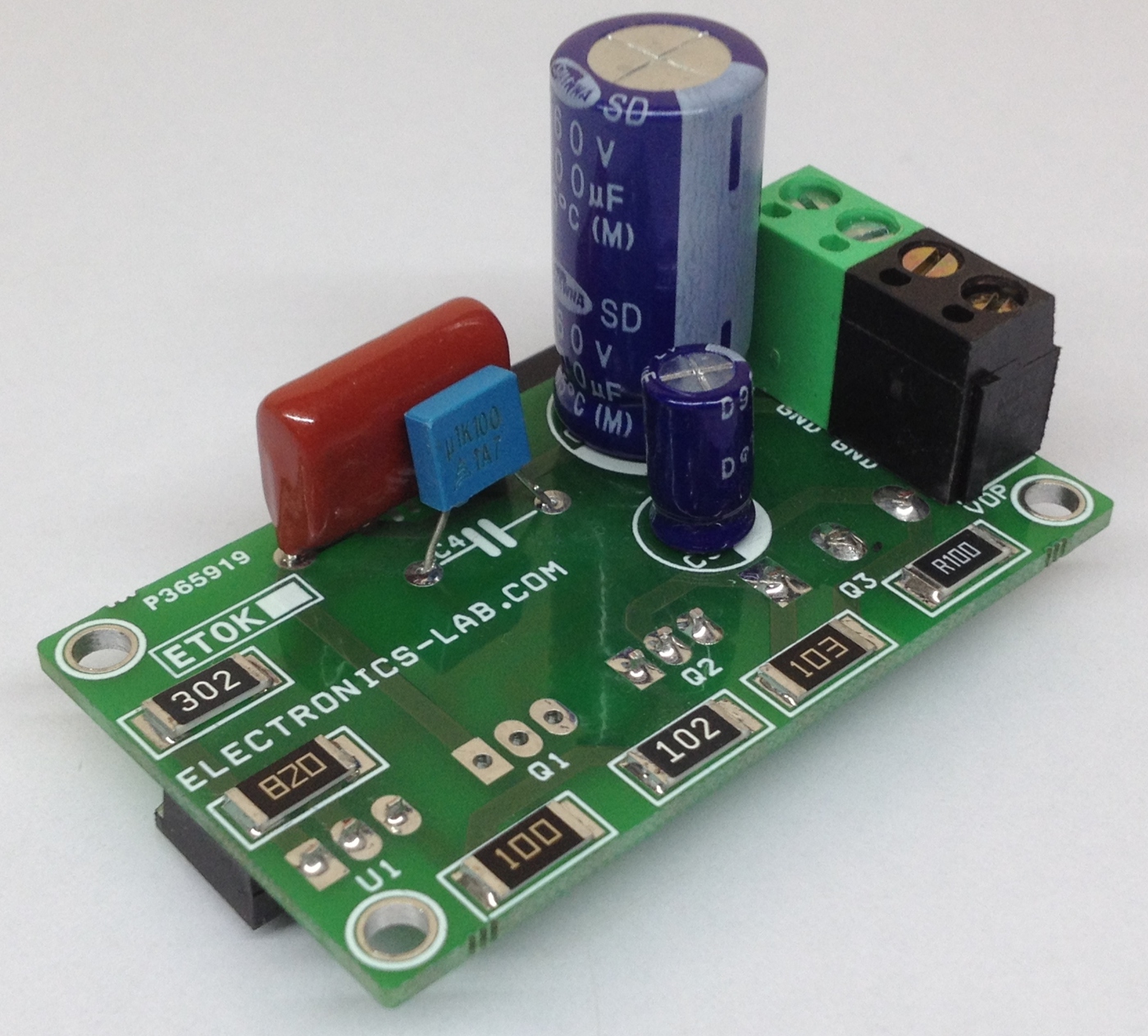
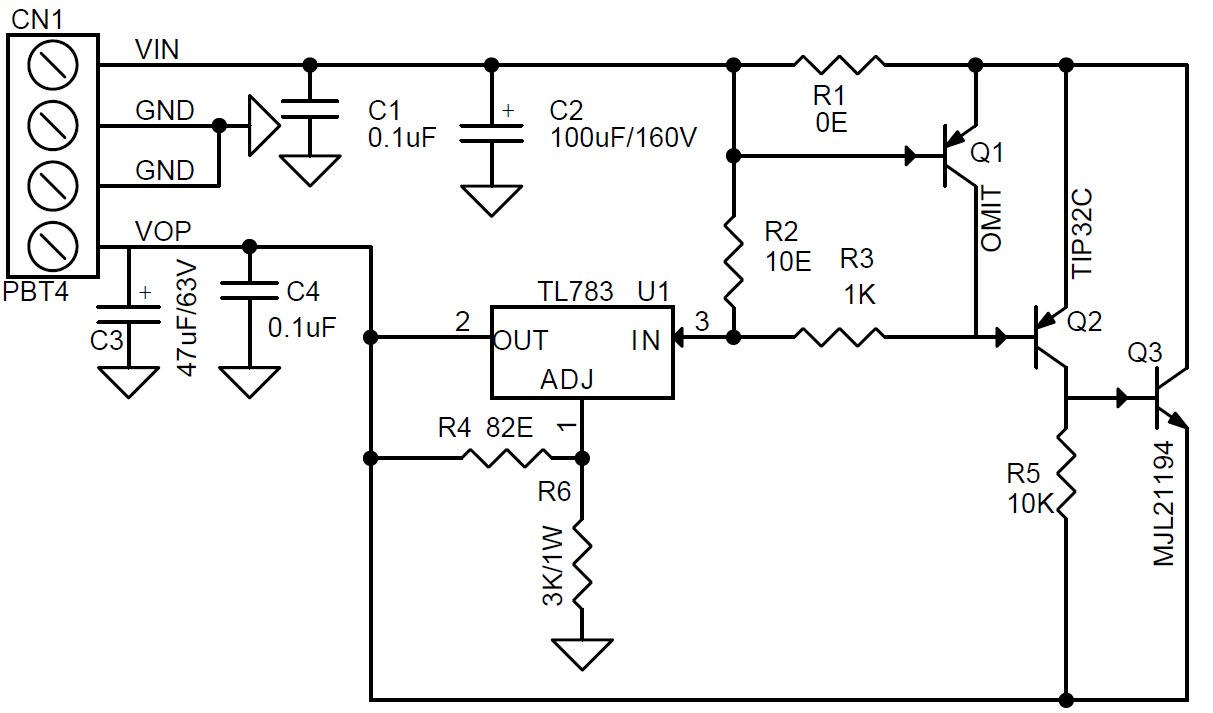
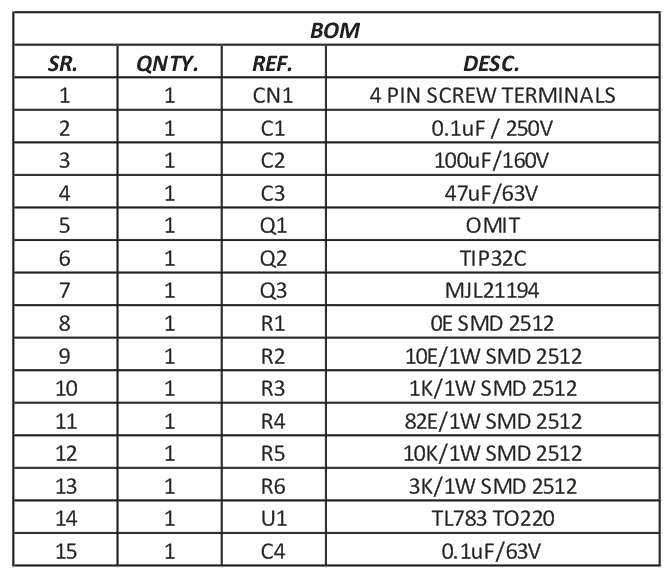
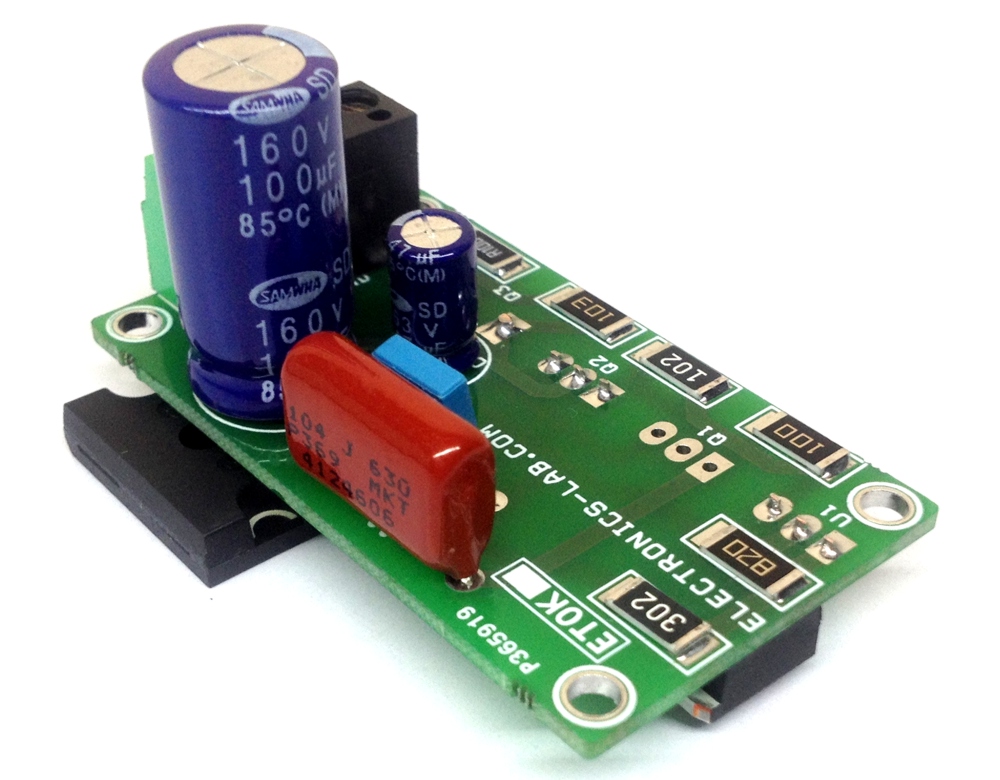


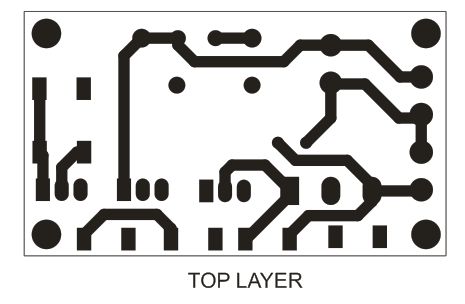
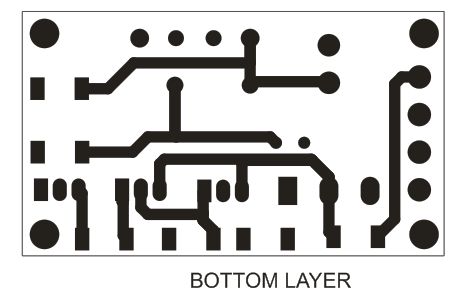
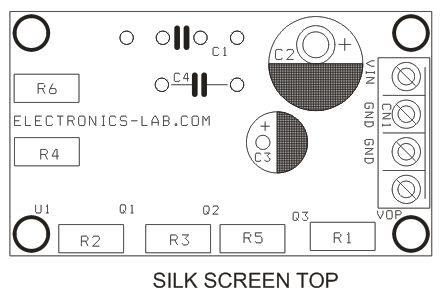





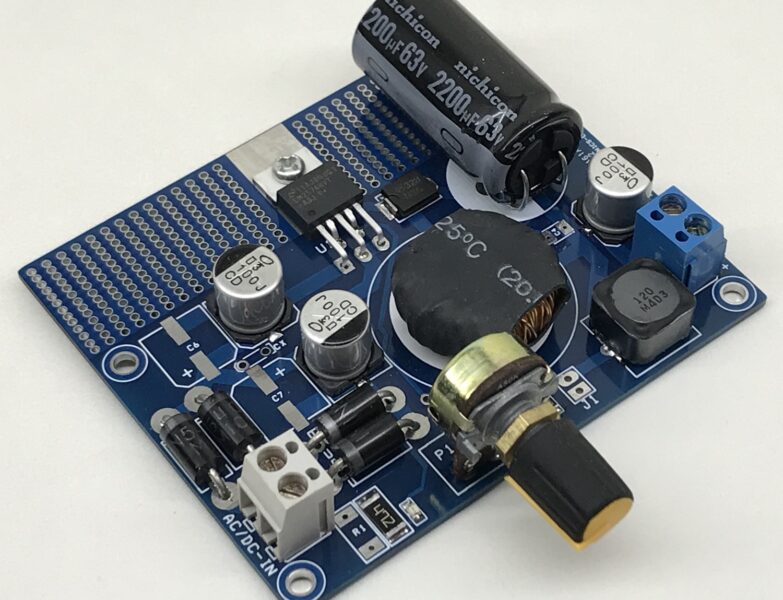
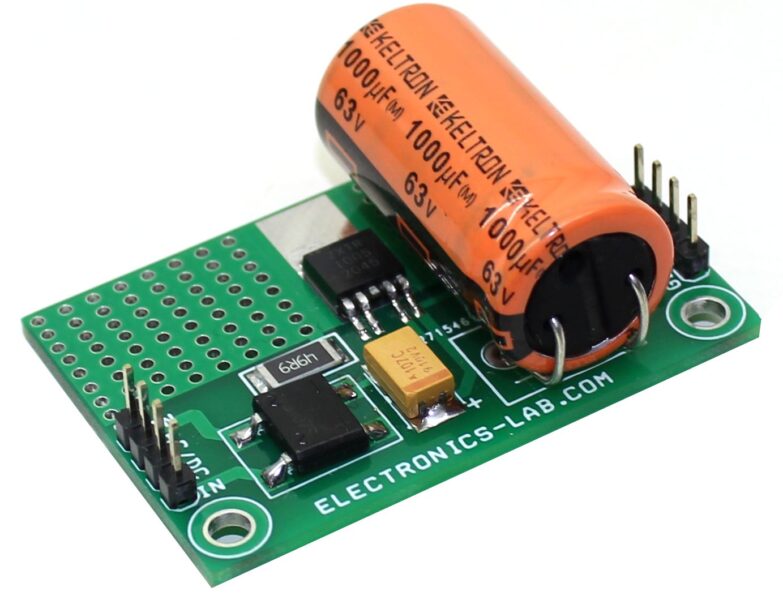
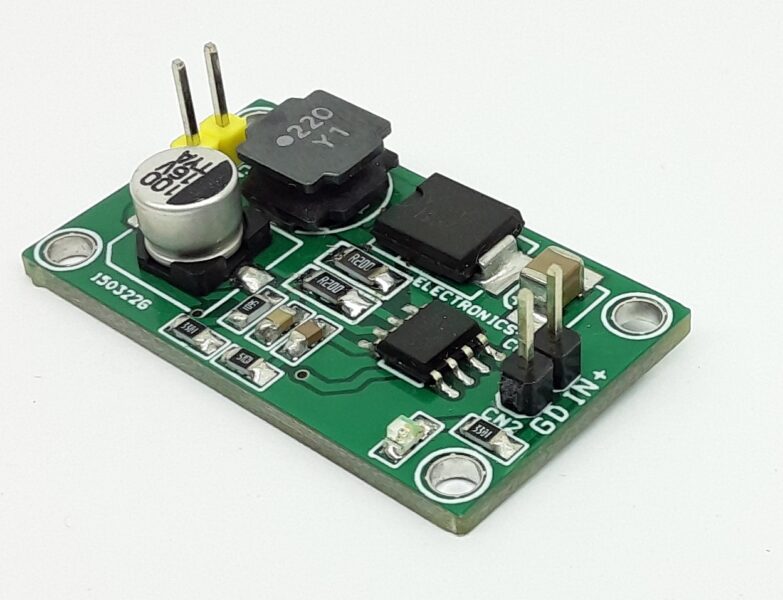
Thanks, but how can I modify it for more current!?
is there a means to take 2200VDC through a similar mechanism to 480VDC or VAC